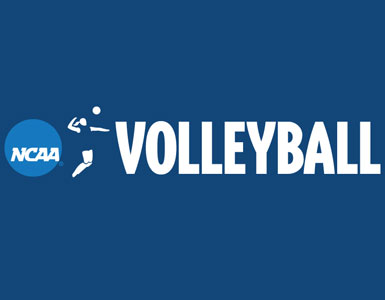It is often the case that high school and juniors players look to their coaches for help in the volleyball recruiting process. In this post I’ll give you a few key tips to help them out. This is based on my own experience as a college recruiter for NCAA Division I, II, and III schools, as well as at the JUCO level.
Watch college volleyball
If you’re really going to help your players out in the volleyball recruiting process you need to understand the landscape. One of the worst things you can do is promote a kid to a college that is simply not at the physical and/or technical level they recruit. That’s a quick way to lose credibility.
Yes, college coaches care about work ethic, attitude, and all of that stuff. The first thing they look at, though, is what shows up on video. Does your player look like the players on the college team you’re targeting in terms of height, jumping ability, arm swing, etc.? What about skills? Obviously, you don’t expect a high school kid to be at the same level as an college player. It shouldn’t be hard to picture them there, though, if they’re actually a good prospect for that team.
This is why it’s important for you to watch college volleyball. There are TONS of matches streamed via ESPN+ and from the schools. And more than that, get in the gyms of local schools from different levels to see what those athletes look like in-person. Pay attention to where kids from your area commit. That will go a long way toward giving you a sense of where your players might fit.
Don’t argue with a recruiter
It’s totally fine for your to advocate for your players. College coaches expect that. Ultimately, however, college volleyball recruiting is done by college volleyball coaches based on their needs, their vision for the team, and other factors. It is literally their job to bring in the right players. If one of them says your kid isn’t what they’re looking for, accept it and move on.
Yes, you might have been around a long time. Yes, you might have sent players to that level of competition before. That stuff will get them to read your email and look at your kid. Ultimately, though, it’s their job on the line in making the recruiting decision, not yours.
Are they going to get it wrong sometimes? Yup. Are they going to prioritize things differently than you do? Sometimes. There’s nothing you can do about it. If you fight a recruiter who’s made their decision, you aren’t going to change their minds and you’re probably going to poison that relationship. Just let it go.
Think about best fit
Speaking of fit, that should be a big theme for your players. We’re talking about volleyball recruiting here, so the sport side of things is obviously a big focus. It isn’t the only focus, however.
The vast majority of the kids you work with over the years will, to paraphrase the NCAA, go professional in something other than volleyball. That means their non-athletic experience is very important. This may be a hard thing for them to understand. Teenagers aren’t always the best when it comes to thinking about their futures, after all. And in some cases their parents don’t help the situation. That means you need to be the voice of reason.
Encourage your players think about school location, the size of the school, the quality of the academic program they’re interested in, living facilities, support services, and all the other things outside athletics. They will spend a lot more time outside the gym than they do in it. That means their environment is important.
Make sure there’s video!
This last one is a biggie. Always, always, always make sure any volleyball recruiting correspondence you have with college coach about a player includes a link to video. That could be directly to a highlight video or to a profile where they have one or more videos.
Obviously, I’m not talking about a situation where you know they’ve seen the player. If you have any reason to believe they haven’t, or might not have, make sure to include a link. It’s really annoying to get a glowing email about a kid from a coach and not have immediate access to check them out. Don’t make us have to search for something.
I’ll have more tips and information in future posts. In the meantime, don’t hesitate to send in your questions. And make sure potential recruits understand the impact of poor attitude on their prospects.
